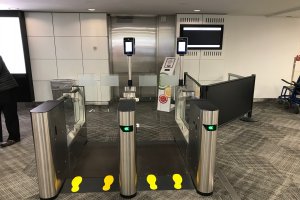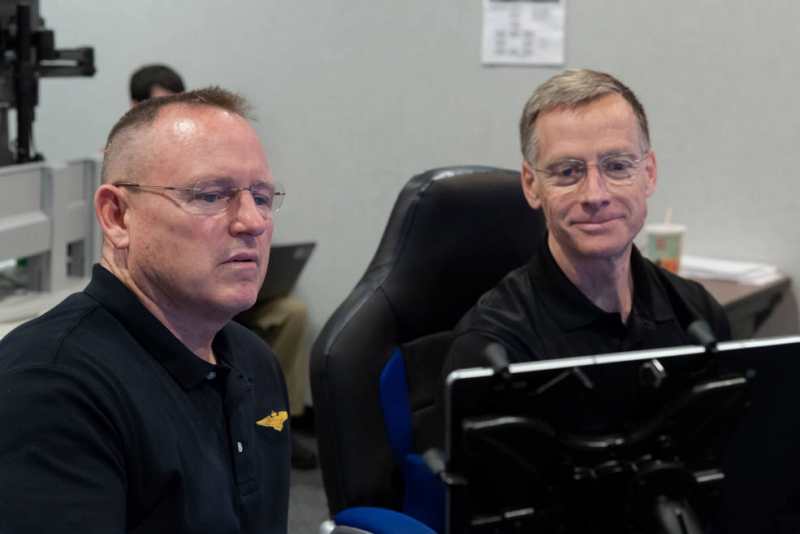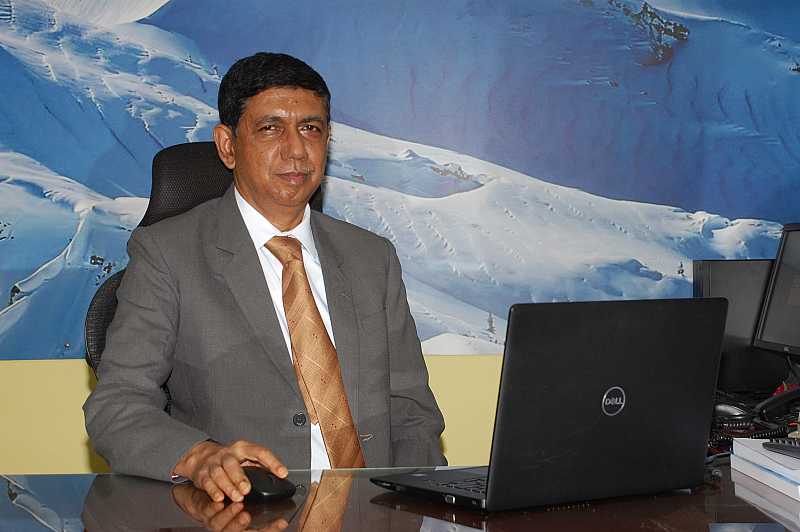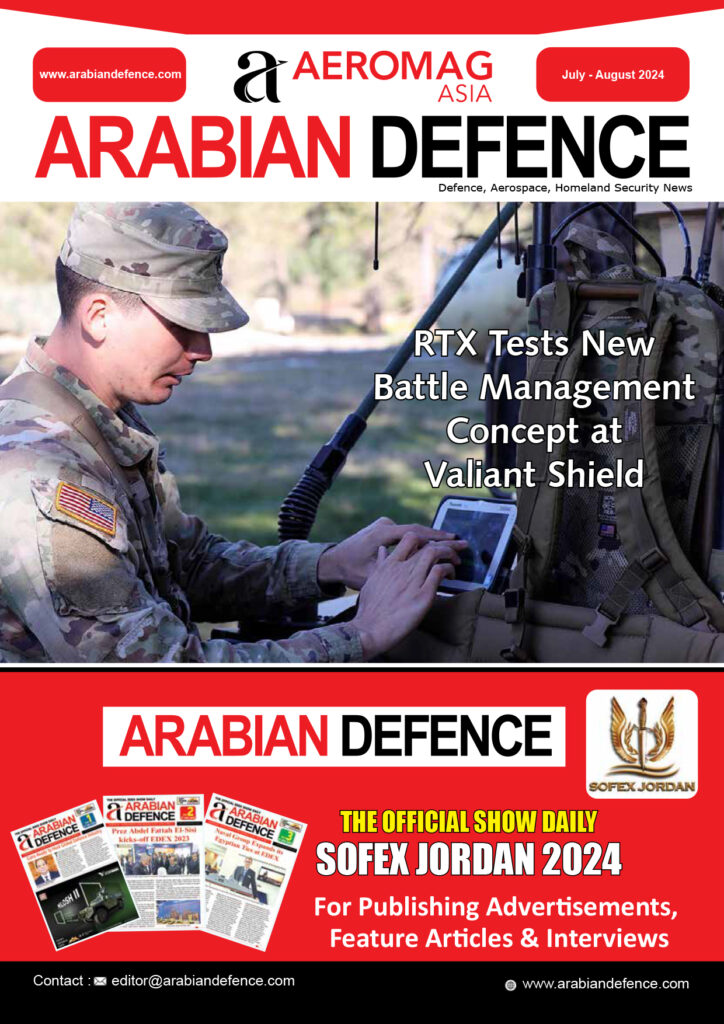 Top players in the aviation sector are working hard to solve the issues created by COVID-19. Even though the challenges are big, there is optimism in the industry about creating innovations that would make commercial air travel safe, smart, and comfortable. Chris Forrest, Vice President, Airport Systems, Collins Aerospace explains the current scenario as well as future plans.
Top players in the aviation sector are working hard to solve the issues created by COVID-19. Even though the challenges are big, there is optimism in the industry about creating innovations that would make commercial air travel safe, smart, and comfortable. Chris Forrest, Vice President, Airport Systems, Collins Aerospace explains the current scenario as well as future plans.
Commercial aerospace is among the key sectors Collins Aerospace has been involved in. Now the COVID-19 pandemic has changed the sector forever. Could you elaborate?
COVID-19 has changed the air travel industry dramatically. I don’t think you’ll find many people who would disagree with that sentiment. We are working hard with our peers in the industry to adjust to this new reality of travel. We’ve always innovated for the future of flight and worked tirelessly to make commercial air travel as safe, smart and comfortable as possible. So working to address the challenges a novel virus has created for this industry is really what we were built for. It’s why we exist. And we’re as dedicated as ever to working with the world’s top experts in health, government and aerospace to solve this issue and help restore confidence in air travel.
Do you feel any aspect of the past flying experience would survive the pandemic?
Our industry has consistently been at the forefront of safety and technology. And now, we are working harder than ever to find the most reliable materials, systems and solutions to make the travel experience as safe and comfortable as possible. That aspect of air travel will never change. We’ll continue to invest heavily in research and development to bring airlines the most technologically advanced solutions that solve their passenger’s greatest concerns and meet their most pressing needs. The future flying experience will certainly look different, but I think that’s a good thing.
Passenger journey has changed dramatically but there are anxieties about infection. Could you tell us how passenger confidence could be restored?
Collins Aerospace is taking a close look at all aspects of the passenger journey to restore the confidence the public has in air travel. Everything from check-in, to baggage drop and all the touchpoints found throughout the aircraft cabin are under an intense review. We’ve developed a cross-functional team that touches all aspects of our business and have partnered with airlines, OEMs, healthcare professionals, government entities and renowned academic and research institutions to investigate this very topic.
The first step Collins Aerospace is focused on is expanding the contactless passenger journey. For instance, a single token-based journey takes a passenger’s biometrics – typically a facial image – and ties it to the passenger’s boarding pass and government issued ID. Once enrolled, facial recognition enables the passenger to securely move through each touchpoint in a touchless, automated self-service fashion using their biometric as the travel token. Passengers can also choose to enroll and fly at a later date. In addition, solutions are being developed to help passengers safely navigate areas of the airport that typically face the most congestion: baggage check, security and immigration lines, boarding gates, and baggage claim areas.
Passengers looking to travel in the near future with a six-foot distance from their peers, will demand airports address these areas of congestion by better enabling a contactless journey. Exciting projects are going on inside the aircraft cabin, as well. We’re creating lavatories that are more touchless with sensor and infrared technology – and we’re making them more sanitary with toilets that virtually eliminate the aerosolization of waste and wastewater. We’re also investigating new materials with inherent antimicrobial properties that can be implemented in applications throughout the cabin. Materials that stand up to harsher and more rigorous cleaning practices, while still maintaining the highest structural integrity standards and preserving the comfort and aesthetic qualities passengers have come to expect.
Additionally, we’re experts in aircraft environmental control systems and how air flow in the cabin is best utilized, exchanged and ventilated. Alongside our air management systems, we’ve developed drop-in HEPA filtering kits for aircraft that previously didn’t have the hospital-grade kit solution available on their fleet – increasing air purity by removing and trapping at least 99.97% of the harmful airborne particles that have a diameter of 0.3 micron.
That’s really just the beginning, too. We’re implementing hand sanitizing stations throughout the aircraft, exploring seating options to best optimize hygienic practices and investigating specialized lighting solutions that help reduce the effectiveness of pathogens in the air.
In fact, many of these solutions can be quick-turn, cost-effective options that have either already been installed on-board commercial aircraft or can be easily implemented within existing cabin architecture. That’s our primary focus right now – to swiftly provide technologies our airline partners need to help restore public confidence in air travel.
What are the new projects being implemented by Collins Aerospace to reduce the risks of the infection on the ground?
 New technologies—specifically, Off-Airport Check In and Baggage Drop and Biometrics—are enabling new processes that focus on keeping each touchpoint safe and virus-free. Airports see their value as efficiency drivers and vital to promoting curb-to-curb passenger confidence.
New technologies—specifically, Off-Airport Check In and Baggage Drop and Biometrics—are enabling new processes that focus on keeping each touchpoint safe and virus-free. Airports see their value as efficiency drivers and vital to promoting curb-to-curb passenger confidence.
Off-Airport Processing
This technology enables passengers to check in, check their bags and get flight details from a number of remote locations, including hotels and resorts, rental car agencies, theme parks, convention centers, train stations and other settings. Collins’ ARINC OnVoy platform solution, for example, brings a secure and cost effective way to move processing and queues away from the airport. In the age of COVID-19, this technology eases the pressure on airport terminals and helps de-stress the traveler’s airport arrival process.
 Biometrics
Biometrics
While not new, Biometrics are not commonly in use for the outbound journey, even in larger global airports. They should be—and as quickly as possible. When leading-edge biometric technology overlays each airport touchpoint so that a passenger’s face becomes that passenger’s identification—instead of constantly pulling out a driver’s license, passport or boarding pass—all airport touchpoints become part of a single end-to-end biometric journey that is contactless, seamless and faster.
There are people who have raised privacy concerns about the new plans being implemented to reduce the risk of infection. How is Collins Aerospace addressing these concerns?
Collins does not collect or withhold any information. Passenger Name Records (PNR) are provided by the airlines’ PSS and the information is passed on to Immigration & Customs for clearance purposes. For applications such as Collins’ electronic cabin bag, the passenger manifest is provided by the airlines and it is synced up onto the server prior to the flight and if there are any seat upgrades/changes, it’s being logged digitally and tracked to reflect the changes. Once the flight is over, the data gets synced with the main server and all data is removed. Collins does not collect or withhold any information.
Cooperation between nations is vital for any safety programme involving international travel to succeed. Could you suggest how such joint efforts can be implemented?
Our border management solutions have been providing cost effective, efficient and seamless API, iAPI and PNR for multiple government agencies worldwide, and we are able to assist nations in the acceleration and implementation of bilateral travel agreements while ensuring it meets all industry standards and protocols.
It is also pointed out that the future has arrived suddenly in the aviation sector because of COVID-19. In such a situation, how do you analyse the future of civil aviation? Any diversification plans?
We plan for the future by keeping a watchful eye on industry trends, remaining in consistent conversation with customers and industry experts and utilizing the best available research to inform our decision making. We are always evaluating opportunities to expand business offerings and improve our operational and strategic goals.
Asia has been one of the major markets of your company. How do you see the future prospects of the region in view of the present situation?
Although the aviation industry has been hit hard by COVID-19, we are confident that future prospects remain bright in the Asia-Pacific region as we work together with fellow industry members to navigate through this pandemic. The region is a major market for Collins and we will work hard to deliver on our commitments to our customers and business partners. We are also doing our part to develop and introduce solutions such as contactless passenger processing systems at airports and air filtration systems in cabins to accelerate recovery and restore confidence to fly.






